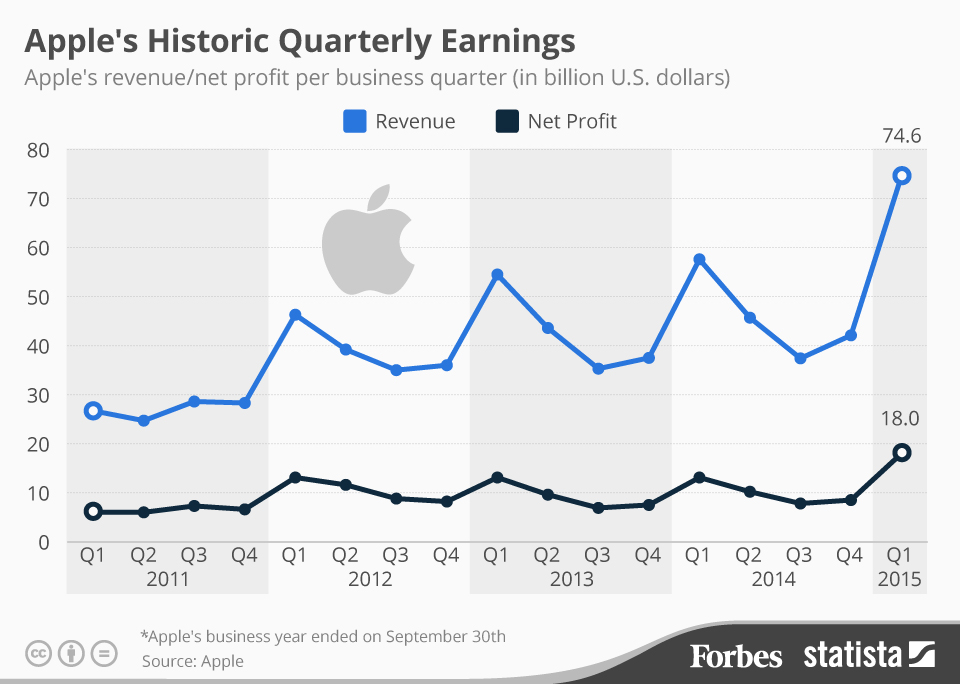Apple AI training practices reflect the company’s commitment to user data privacy while advancing its artificial intelligence capabilities. By leveraging synthetic data alongside genuine user interactions, Apple ensures that the insights gathered are both valuable and respectful. This innovative approach harnesses machine learning techniques in a way that prevents the sharing of sensitive information, adhering to strict guidelines for user data privacy. Through practices like differential privacy, Apple can analyze trends without compromising individual identities or personal data. As the company integrates these methods into its Apple Intelligence features, it paves the way for smarter technology that prioritizes security and user trust.
In recent developments, Apple has introduced a novel framework for enhancing its artificial intelligence systems by focusing on data integrity and user confidentiality. This approach involves the use of generated datasets that simulate real-user data, allowing the company to refine its AI tools while ensuring that actual user content remains untouchable. By employing strategies like privacy-preserving techniques, particularly in areas related to user-generated content, Apple is able to glean useful insights without risking data exposure. This dual focus on advancing technology and safeguarding user information is evident in initiatives related to machine learning and user data analytics. Overall, Apple’s innovative stance on training practices underlines its commitment to maintaining a balance between technological advancement and user privacy.
Enhancing AI Training Practices with Synthetic Data
Apple has made significant strides in enhancing its AI training practices, particularly by leveraging synthetic data while respecting user privacy. In its recent blog post, Apple clarified its intent to utilize synthetic data to improve its Machine Learning capabilities without compromising the privacy of user data. The approach revolves around comparing synthetic datasets generated by Apple with authentic user data that remains securely on the participants’ devices. This not only ensures that sensitive information is never transferred to Apple but also upholds the integrity of user data privacy policies, establishing a benchmark for ethical AI practices.
Furthermore, the importance of synthetic data in Apple’s plans cannot be overstated. By creating synthetic emails that mimic the form and function of genuine communications, Apple can analyze user engagement trends without accessing actual user content. This innovative method provides a unique opportunity to refine AI models while adhering to strict compliance measures regarding user data. The focus on differential privacy in this context ensures that Apple can glean insights into user behavior without risking the exposure of personally identifiable information, thus illustrating a commitment to user data privacy and ethical AI development.
The Role of Differential Privacy in AI Development
Differential privacy serves as a cornerstone for Apple’s AI initiatives, particularly in how it gathers insights from user behavior. By employing differential privacy techniques, Apple can randomly sample data across participating devices without linking the information back to any specific individual. This method allows Apple to maintain the confidentiality of user behavior while still deriving meaningful patterns that can enhance the functionality of its services. Such a strategy reflects Apple’s commitment to user data privacy while also leveraging innovative technologies to improve AI outcomes.
In practice, differential privacy empowers Apple to understand user preferences and trends by aggregating data from multiple sources while safeguarding individual identity. For instance, when it comes to enhancing its Genmoji feature or developing new functionalities within Apple Intelligence, Apple strategically polls participating devices for trends in prompts and user interactions. The randomized nature of this sampling process means that the insights gained are protected, allowing for machine learning systems to learn effectively without infringing upon user confidentiality.
Understanding Machine Learning Through User Data Privacy
Machine learning relies heavily on data to train algorithms that can predict outcomes, generate content, and personalize user experiences. However, for companies like Apple, balancing the need for data with the imperative of user privacy poses a significant challenge. Apple has taken pioneering steps to ensure that user data privacy remains at the forefront of its machine learning strategies. By defining clear boundaries around what constitutes acceptable data usage and ensuring that user interactions are not utilized directly, Apple reinforces its image as a privacy-focused technology leader.
Moreover, the ethical considerations of using user data in machine learning underscore Apple’s innovative approach to data collection and analysis. By curating datasets from synthetic data along with robust privacy frameworks, Apple not only enhances its AI capabilities but also builds consumer trust. Users can engage with Apple’s AI features knowing that their personal information is protected and that their interactions contribute to improving technology without compromising their privacy. This dual focus on robust machine learning and unwavering user data protection sets Apple apart in the competitive landscape of AI development.
Crafting Synthetic Experiences for Enhanced User Engagement
Apple is redefining user engagement through the intelligent use of synthetic data, aimed primarily at enhancing the range of experiences it offers. By generating synthetic emails resembling real user communications, Apple can create a rich dataset that reflects diverse user interactions while keeping actual user emails confidential. This innovative strategy not only improves AI’s understanding of language and context but also significantly boosts the personalization of the services offered to users, demonstrating a dynamic application of machine learning techniques.
In addition to its deployment in synchronous user experiences like email summaries, synthetic data plays a vital role in areas such as image recognition and interactive features like Genmoji. By leveraging user-contributed data patterns in these areas, Apple can advance the functionality of its applications while ensuring that all data stays secure within the confines of individual devices. This thoughtful incorporation of synthetic experiences underlines Apple’s commitment to blending innovation with user empowerment, ensuring that improvements enhance usability without infringing on user data privacy.
Apple Intelligence and the Future of Machine Learning
As Apple continues to innovate with its Artificial Intelligence features, the future of machine learning appears bright, especially with the integration of user-friendly tools and enhanced privacy measures. With each iteration of iOS, iPadOS, and macOS, Apple showcases its ability to intertwine complex machine learning algorithms with thoughtful applications designed to improve user experience without compromising on data security. The advancements promised in upcoming releases reflect Apple’s dedication to creating responsive technologies that prioritize user sovereignty over their data.
Additionally, Apple Intelligence stands to benefit considerably from the implementation of synthetic data and differential privacy techniques. By effectively utilizing aggregated user insights while safeguarding individual identities, Apple not only strengthens its AI capabilities but also positions itself as a leader in ethical AI practices. The company’s commitment to innovation is evident in its strategic approach, which harmonizes advancements in technology with the paramount importance of user data privacy, setting a high standard for the industry.
Comparing Real Data with Synthetic Data for AI Improvements
The comparison of real data with synthetic data plays an integral role in Apple’s mission to enhance its AI systems. By leveraging both forms of data, Apple can test the efficiency and effectiveness of its algorithms in a controlled yet realistic manner. This method allows for a rigorous validation process where synthetic datasets can be refined and improved based on the insights gathered from actual user data, thereby optimizing the performance of Apple Intelligence features without putting user privacy at risk.
Moreover, the creation of these synthetic datasets involves advanced techniques that capture the nuanced behaviors and patterns of real user interactions. This not only boosts the accuracy of AI predictions but also helps Apple craft a more engaging and personalized user experience. Leveraging this duality of real versus synthetic data is a hallmark of modern AI development, and Apple’s commitment to this approach signals its proactive stance in navigating the complex landscape of user data privacy while pushing the boundaries of machine learning capabilities.
User Data Privacy: A Core Principle of Apple’s AI Strategy
User data privacy is not just an afterthought for Apple; it is a foundational principle embedded in the core of its AI strategy. As Apple strives to enhance its products and services through the application of machine learning, the company remains unwavering in its commitment to protecting user information. By adhering to stringent guidelines and implementing innovative solutions such as differential privacy and synthetic data generation, Apple underscores its resolve to prioritize user privacy in every aspect of its AI endeavors.
This commitment has major implications for the future of AI technologies. Users can enjoy enhanced features and functionalities while having confidence that their private information is being safeguarded. Apple’s willingness to be transparent about its practices and to continually adapt its strategies in response to evolving privacy concerns sets a commendable example within the tech industry. As other companies look to develop their AI capabilities, they may draw insight from Apple’s approach, reinforcing the notion that an ethical, privacy-focused framework can coexist with cutting-edge technological advancements.
Innovative Approaches to Email Summarization in AI
Apple’s recent innovations in email summarization exemplify the unique integration of advanced technology and user privacy. In its forthcoming iOS 18.5 and related updates, Apple plans to utilize comparison techniques involving synthetic emails and real user emails to enhance its summation features. By employing machine learning models with a solid foundation in user behavior analysis, Apple can create more accurate and contextually relevant email summaries that streamline users’ email interactions, all while ensuring that no actual data is transferred beyond the secure environment of the device.
This type of intelligent email summarization is not only beneficial for the users seeking efficiency in managing their communications but also serves as a model for other potential applications within Apple Intelligence. As Apple refinements continue, the use of synthetic data combined with differential privacy measures encourages users to engage with these features without fear of compromising their information. The result is an evolving, user-centric service that is poised to redefine email management through the lens of sophisticated AI development.
Building Trust with Users Through Transparent AI Practices
To successfully integrate machine learning into its services, Apple understands the importance of building and maintaining trust with its users. The transparency in its AI development practices, particularly its careful use of user data via synthetic data and differential privacy, serves as a testament to Apple’s dedication to user respect and privacy preservation. By openly communicating its methodologies for data handling, Apple not only educates its user base about how AI works but also fosters a climate of trust that encourages wider adoption of its advanced technologies.
Trust is a crucial factor when users interact with AI-driven features, and Apple is keenly aware of this dynamic. By advocating for principles of ethical data use and prioritizing user confidentiality, the company builds confidence in its products. In an era where technology and privacy concerns often conflict, Apple’s proactive approach in maintaining transparency and accountability stands to empower users, making them more willing to engage with AI features without the fear of data misuse.
Frequently Asked Questions
How does Apple ensure user data privacy in its AI training practices?
Apple prioritizes user data privacy by employing cutting-edge techniques such as differential privacy and synthetic data. By analyzing only the aggregated insights from opted-in Device Analytics without accessing individual personal information, Apple ensures that users’ private data remains secure while still enhancing its AI models.
What role does synthetic data play in Apple’s AI training practices?
Synthetic data is crucial in Apple’s AI training practices, allowing the company to generate representative datasets that humanize and reflect user interactions. By comparing these synthetic datasets with real user-generated emails on participating devices, Apple trains its AI systems without compromising user privacy.
What is differential privacy, and how is it implemented in Apple’s AI training?
Differential privacy is a method utilized by Apple to analyze trends in user data while preserving anonymity. By randomly selecting data points from devices that opt into Device Analytics, Apple can gather insights into popular usage patterns without identifying individual users, enabling safer AI training.
What are the benefits of synthetic emails in enhancing Apple Intelligence features?
Synthetic emails help Apple improve the text generation capabilities of Apple Intelligence by allowing the training of AI models tailored to user preferences. By comparing synthetic messages to real emails only on the user’s device, Apple can refine its AI features while respecting user privacy.
How does Apple use user consent in its AI training practices?
User consent is integral to Apple’s AI training practices. Users must opt into Device Analytics to participate in this innovative AI development, ensuring that any data used for training is approved and controlled by the user, further enhancing trust in Apple’s attentiveness to privacy.
How does Apple filter user data for personal information during AI training?
Apple applies strict filters to exclude personally identifiable information (PII) from its AI training datasets. For example, when using publicly available content, Apple ensures that sensitive information like Social Security numbers or credit card details are never included, maintaining user privacy at all times.
What advancements in Apple Intelligence are expected in upcoming software updates?
In the upcoming betas of iOS 18.5 and macOS 15.5, Apple plans to leverage synthetic data through Device Analytics to enhance features like email summaries and Genmoji emojis, continuing its commitment to user privacy while advancing its AI capabilities.
| Key Points | Details |
|---|---|
| User Data Utilization | Apple plans to use user data to enhance AI training while respecting privacy. |
| Synthetic Data Approach | Apple will compare synthetic data with user-created content on devices, keeping data local. |
| Privacy Principles | Apple avoids using private personal data or identifiable information in training its models. |
| Device-based Analysis | Analysis occurs on user devices to ensure privacy and security of individual emails. |
| Differential Privacy | Used to learn trends from devices without linking data to individual users. |
| New Features Announcement | Synthetic data will be used in upcoming iOS, iPadOS, and macOS updates. |
Summary
Apple AI training practices focus on leveraging user data responsibly while maintaining user privacy. By employing innovative techniques, such as the use of synthetic data generated from user interactions on participating devices, Apple aims to enhance its AI capabilities without compromising personal information. This approach highlights Apple’s commitment to user privacy while improving the user experience through smarter AI-driven features.



